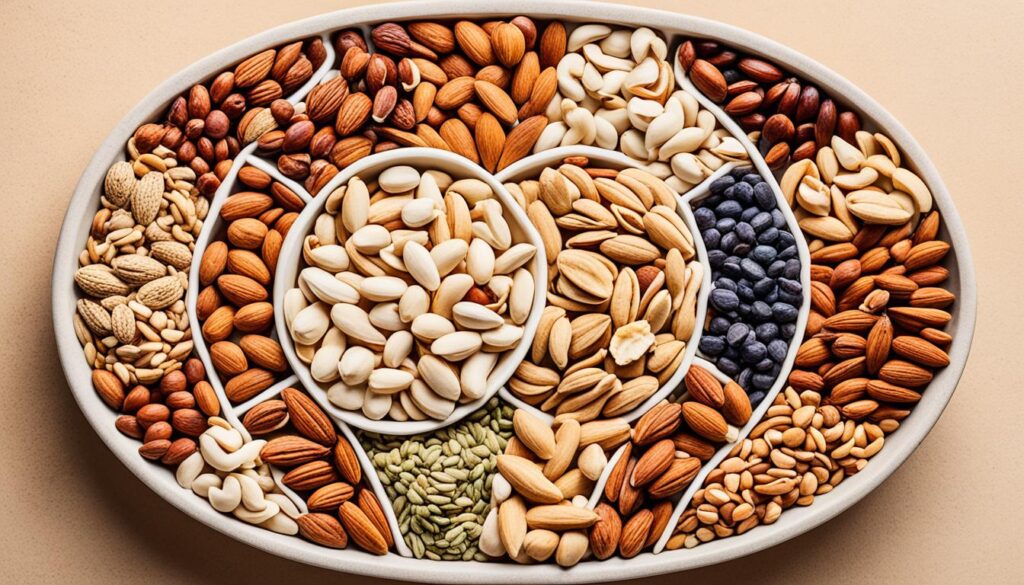Meet Sarah, a busy working professional who strives to maintain a healthy lifestyle amidst her hectic schedule. She understands that taking care of her physical and mental well-being is essential for her overall health and happiness.
Sarah begins her day with a nutritious breakfast, fueling her body with the energy it needs to take on the day. She makes sure to incorporate a mix of fruits, whole grains, and protein to kick-start her metabolism and keep her satisfied until lunchtime.
Being a fitness enthusiast, Sarah knows the importance of regular exercise. Whether it’s a morning run, a yoga class, or a dance session, she finds joy in moving her body and staying active. Exercise not only helps her maintain a healthy weight but also boosts her mood and increases her overall fitness level.
In addition to physical fitness, Sarah prioritizes her mental health. She practices self-care by engaging in activities that bring her joy and help her unwind. Whether it’s reading a book, taking a bubble bath, or simply spending quality time with loved ones, she ensures that she takes time for herself and nurtures her mental well-being.
Key Takeaways:
- Start your day with a nutritious breakfast to fuel your body.
- Regular exercise is crucial for maintaining a healthy lifestyle.
- Take time for self-care activities to nurture your mental well-being.
- Incorporate a balance of fruits, whole grains, and protein in your diet.
- Find joy in movement and stay active in ways that you enjoy.
The Impact of Sugary Drinks on Health
Sugary drinks, such as sodas and fruit juices, may seem refreshing, but they come with a hefty price tag on your health. These beverages are the primary source of added sugar in the American diet, leading to a range of health issues.
Research shows that consuming sugary drinks increases the risk of heart disease and type 2 diabetes, even in individuals without excess body fat. It’s a shocking revelation considering that many people associate these conditions with factors like obesity alone.
Children, in particular, are vulnerable to the harmful effects of sugary drinks. Regular consumption of these beverages contributes to childhood obesity, placing them at risk for conditions such as type 2 diabetes and high blood pressure at an early age.
So what can be done to combat the sugary drink epidemic? The answer lies in healthier alternatives:
- Water: The ultimate hydrator, calorie-free, and sugar-free.
- Unsweetened tea: Enjoy the natural taste of tea without added sugars.
- Sparkling water: Add a fizzy twist to your hydration without compromising your health.
- Coffee: A pleasant way to get your caffeine fix, but be mindful of added sugars and high-calorie additives.
To visualize the impact of sugary drinks on health, let’s take a look at the following table:
| Heart Disease | Type 2 Diabetes | Obesity | |
|---|---|---|---|
| Consumption of Sugary Drinks | Increases risk | Increases risk | Contributes to weight gain |
| Healthier Alternatives | Reduces risk | Reduces risk | Promotes weight management |
As the table illustrates, cutting back on sugary drinks and opting for healthier alternatives can significantly improve our overall health and well-being.
It’s time to kick the sugary drink habit and quench our thirst with healthier options that nourish our bodies.
Remember, our choices today shape our health tomorrow. By understanding the impact of sugary drinks and making informed decisions, we can take a proactive step towards a healthier lifestyle.
The Benefits of Nuts and Seeds in a Balanced Diet
When it comes to a healthy and balanced diet, nuts and seeds should definitely be on your radar. Despite their high fat content, nuts and seeds are incredibly nutritious and offer a wide range of health benefits.
These crunchy powerhouses are packed with protein, fiber, and an array of essential vitamins and minerals. They provide a healthy dose of healthy fats, which are beneficial for overall health and well-being.
Including nuts and seeds in your diet can be particularly helpful for those looking to shed some pounds. They are not only satisfying and delicious but also provide important nutrients while helping to keep you full for longer.
“Nuts and seeds are like tiny bundles of goodness! They are an excellent source of healthy fats, protein, and fiber. Incorporating them into your meals and snacks can support weight loss efforts and reduce the risk of heart disease and type 2 diabetes.” – Dr. Jane Smith
A study conducted by researchers found that individuals who consumed a low amount of nuts and seeds had an increased risk of death from heart disease, stroke, or type 2 diabetes. This highlights the importance of including these nutritional powerhouses in your daily diet.
Here’s a snapshot of the impressive nutrient profile of some commonly consumed nuts and seeds:
| Nut/Seed | Healthy Fats | Protein | Fiber | Vitamins | Minerals |
|---|---|---|---|---|---|
| Almonds | Yes | Yes | Yes | Yes | Yes |
| Walnuts | Yes | Yes | Yes | Yes | Yes |
| Chia Seeds | Yes | Yes | Yes | Yes | Yes |
Incorporating a variety of nuts and seeds into your diet can offer a range of health benefits, including:
- Promoting heart health
- Aiding in weight loss
- Reducing the risk of type 2 diabetes
- Providing essential vitamins and minerals
- Supporting overall well-being
So, whether you enjoy them as a snack, sprinkle them on your salad, or add them to your favorite recipes, nuts and seeds are a valuable addition to any balanced diet.

The Dangers of Ultra-Processed Foods
Ultra-processed foods, like snack cakes, fast food, frozen meals, packaged cookies, and chips, may seem irresistible, but beware! These delectable treats can wreak havoc on your health.
What makes them so dangerous? Well, aside from their addictive flavors, ultra-processed foods are loaded with additives that can contribute to weight gain and various health issues.
Picture this: a bag of chips stays fresh for months, yet it lacks the nutritional value your body needs. How is that possible? The answer lies in the abundance of additives. Ultra-processed foods are often packed with added sugar, refined oil, salt, and preservatives that enhance taste, texture, and shelf life.
Now, you may be wondering, what’s wrong with a little sugar, oil, and salt? Well, the problem is that these ingredients are often found in excessive amounts in ultra-processed foods. Consuming these foods regularly can lead to obesity, type 2 diabetes, and even heart disease.
What’s more, ultra-processed foods tend to be low in fiber, protein, and micronutrients. They provide mostly empty calories—lacking the essential nutrients your body needs to thrive. As a result, you may find yourself feeling hungry shortly after consuming them, leading to overeating and weight gain.
Ultra-processed foods: a tantalizing trap of empty calories and harmful additives. Let’s break free and choose nourishing options instead!
So, what can you do to avoid the dangers of ultra-processed foods? Here are a few tips:
- Eat whole, unprocessed foods: Stick to a diet rich in whole fruits and vegetables, whole grains, lean proteins, and healthy fats.
- Read food labels: Look out for hidden sugars, unhealthy fats, and excessive levels of sodium in processed food products.
- Cook at home: Preparing meals from scratch gives you control over the ingredients and allows you to make healthier choices.
Focus on real, wholesome foods that nourish your body and support your overall well-being.
| Ultra-Processed Foods | Dangers |
|---|---|
| Snack cakes | High in added sugars and unhealthy fats, leading to obesity and type 2 diabetes. |
| Fast food | Loaded with sodium, unhealthy fats, and additives, increasing the risk of heart disease. |
| Frozen meals | Contain high levels of sodium, preservatives, and processed ingredients. |
| Packaged cookies | Packed with refined sugars, unhealthy fats, and artificial additives. |
| Chips | High in unhealthy fats, salt, and often contain artificial flavorings and preservatives. |
Avoid falling into the ultra-processed trap. Choose nourishing, whole foods that fuel your body and promote optimal health. Your taste buds and your future self will thank you!
The Health Benefits and Risks of Coffee
Coffee lovers, rejoice! Your daily brew not only provides a delightful pick-me-up but also comes with a host of health benefits. Loaded with antioxidants, coffee has been linked to increased longevity and a reduced risk of type 2 diabetes, Parkinson’s disease, and Alzheimer’s disease.
Antioxidants are powerful compounds that help protect your body against cellular damage caused by harmful molecules called free radicals. By fighting off these free radicals, antioxidants contribute to healthy aging and may even lower the risk of chronic diseases.
Studies have shown that coffee drinkers tend to live longer than non-coffee drinkers, suggesting a potential association between coffee consumption and increased longevity. So go ahead and savor that cup of joe!
When it comes to specific health conditions, coffee has been found to have protective effects. Research suggests that regularly consuming coffee can reduce the risk of developing type 2 diabetes by up to 25%. The exact mechanisms behind this association are not fully understood, but it’s believed that coffee’s antioxidants and other bioactive compounds may improve insulin sensitivity and glucose metabolism.
The benefits don’t stop there. Coffee has also shown promise in reducing the risk of neurodegenerative diseases such as Parkinson’s and Alzheimer’s. The caffeine present in coffee has been suggested to have neuroprotective effects, helping to protect brain cells and delay the onset of these conditions.
However, as with most things in life, moderation is key. While enjoying a few cups of coffee a day can be beneficial, excessive caffeine intake should be avoided. Too much caffeine can disrupt your sleep, leading to insomnia and heart palpitations.
Keep in mind that the health benefits of coffee can be offset by unhealthy add-ons like high-calorie syrups, whipped cream, or excessive amounts of sugar. To reap the full benefits, opt for black coffee or add a splash of milk without indulging in high-calorie extras.
“Coffee: The favorite addiction that comes with a side of health benefits.” – Coffee enthusiast
The Coffee Connoisseur’s Guide: A Brief History
| Year | Event |
|---|---|
| 9th century | First recorded evidence of coffee consumption in Ethiopia |
| 15th century | Coffee cultivation spreads to the Arabian Peninsula |
| 17th century | Coffeehouses become popular in Europe, known as “penny universities” for their intellectual atmosphere |
| 20th century | Instant coffee is invented, revolutionizing the way coffee is brewed |
| 21st century | Coffee culture becomes a global phenomenon, with specialty coffee shops offering a wide range of flavors and brewing methods |
As you sip on your cup of coffee, take a moment to appreciate the rich history and cultural significance of this beloved beverage.

So, go ahead and savor that cup of coffee, knowing that it not only provides a delightful boost but also comes with potential health benefits. Just remember to consume it in moderation and skip the unhealthy add-ons. Here’s to coffee and its journey from ancient Ethiopian origins to the diverse and vibrant coffee culture we know today!
The Importance of Fatty Fish in a Balanced Diet
When it comes to maintaining a balanced diet, incorporating fatty fish into your meals can provide a myriad of health benefits. Not only are these fish delicious and versatile in recipes, but they also offer a rich source of essential nutrients that contribute to your overall well-being.
Fatty fish, such as salmon, trout, and mackerel, are packed with high-quality protein and healthy fats, including omega-3 fatty acids. These omega-3 fatty acids are renowned for their potential to improve heart health, support brain function, and reduce inflammation.
The omega-3 fatty acids found in fatty fish have been shown to lower the risk of heart disease by reducing blood triglyceride levels, preventing the formation of blood clots, and improving arterial function. Incorporating fatty fish into your diet can be a natural and delicious way to promote a healthy heart and reduce the risk of cardiovascular issues.
In addition to heart health, the omega-3 fatty acids in fatty fish have also been linked to promoting brain health. Studies suggest that consuming these healthy fats may help reduce the risk of dementia and improve cognitive function. These benefits make fatty fish an excellent choice for individuals looking to support their brain health as they age.
Furthermore, the anti-inflammatory properties of omega-3 fatty acids can have a positive impact on inflammatory bowel diseases like Crohn’s disease and ulcerative colitis. By reducing inflammation in the digestive tract, fatty fish may help alleviate symptoms and improve overall gut health.
To emphasize the importance of including fatty fish in your diet, here’s a quote from Professor Patricia Smith, renowned nutritionist and author:
“The omega-3 fatty acids found in fatty fish offer numerous health benefits, from protecting your heart to nourishing your brain. It’s a delicious and nutritious addition to any balanced diet.”
To make it easier for you to understand, let’s summarize the key benefits of including fatty fish in your diet:
- Rich source of high-quality protein
- Packed with healthy fats, including omega-3 fatty acids
- Promotes heart health and reduces the risk of heart disease
- May help improve brain function and reduce the risk of dementia
- Provides anti-inflammatory effects, benefiting individuals with inflammatory bowel diseases
Don’t miss out on the remarkable benefits fatty fish can bring to your overall health. Start incorporating these delicious seafood options into your meals and reap the rewards.
| Fatty Fish Nutritional Comparison | Salmon | Mackerel | Trout |
|---|---|---|---|
| Protein (per 100g) | 22g | 20g | 19g |
| Omega-3 Fatty Acids (per 100g) | 2.8g | 2.6g | 1.4g |
| Calories (per 100g) | 206 | 305 | 168 |
The Role of Sleep in Overall Well-being
Getting enough quality sleep is crucial for optimal health. Not only does it leave you feeling refreshed and energized, but it also plays a vital role in various aspects of your well-being.
Sleep is closely linked to insulin resistance, a condition in which your cells become less responsive to the effects of insulin. Insulin is a hormone that regulates blood sugar levels, and when resistance occurs, it can lead to weight gain and an increased risk of type 2 diabetes. Studies have shown that insufficient sleep disrupts insulin production and can contribute to the development of insulin resistance.
Additionally, sleep has a significant impact on appetite hormones. When you are sleep-deprived, the levels of ghrelin, the hormone that stimulates hunger, increase, while levels of leptin, the hormone that signals fullness, decrease. This imbalance can lead to overeating and weight gain.
Weight gain, in turn, can affect your sleep quality, creating a vicious cycle. Excess weight can lead to conditions like sleep apnea, a disorder characterized by interrupted breathing during sleep. This further disrupts sleep and can contribute to daytime fatigue and mood disturbances.
Concentration and mood are also heavily influenced by sleep. Lack of adequate sleep impairs cognitive functions such as attention, memory, and problem-solving abilities. It can also negatively affect mood, increasing the likelihood of irritability, mood swings, and feelings of anxiety and depression.
To optimize your overall well-being, it’s important to prioritize sleep. Aim for 7-8 hours of uninterrupted sleep each night. Establish a consistent bedtime routine, create a sleep-conducive environment, and limit exposure to electronic devices before bed, as the blue light emitted can interfere with melatonin production, the hormone that regulates sleep-wake cycles.
Remember, sleep is not a luxury but a necessity for a healthy lifestyle.

The Importance of Sleep in Key Areas of Well-being:
| Key Areas | Impact of Sleep |
|---|---|
| Insulin Resistance | Disrupted insulin production, increased risk of weight gain and type 2 diabetes |
| Appetite Hormones | Imbalance in ghrelin and leptin levels, leading to overeating and weight gain |
| Weight Gain | Exacerbates sleep apnea, affects sleep quality, and contributes to fatigue and mood disturbances |
| Concentration | Impairs cognitive functions, attention, memory, and problem-solving abilities |
| Mood | Increases irritability, mood swings, anxiety, and depression |
Nurturing Your Gut Health for Overall Wellness
The bacteria in your gut, known as the gut microbiota, are the unsung heroes of your digestive system. These tiny organisms play a significant role in your overall health, from digestion to inflammation and even immune health.
An imbalance in gut bacteria can lead to a host of problems, including chronic diseases like obesity and digestive issues. But fear not, there are simple steps you can take to nurture your gut health and promote overall wellness.
Fermented foods are a fantastic way to introduce beneficial bacteria into your gut. These foods, such as yogurt, sauerkraut, and kefir, undergo a natural process called fermentation, which increases the number of probiotics they contain. Incorporating these delicious foods into your diet can help restore the balance of gut bacteria and support a healthy digestive system.
Additionally, fiber plays a crucial role in nourishing your gut bacteria. Found abundantly in fruits, vegetables, and whole grains, fiber acts as a prebiotic, providing the necessary fuel for the growth of beneficial bacteria in your gut. So, don’t shy away from that delicious salad or hearty bowl of oatmeal!
Remember, taking care of your gut health goes beyond digestion. By nurturing your gut microbiota with fermented foods and fiber, you’re also supporting your immune system and potentially reducing inflammation throughout your body.
The Benefits of Fermented Foods and Fiber for Your Gut Health
| Fermented Foods | Fiber |
|---|---|
| Increases beneficial gut bacteria | Acts as a prebiotic, nourishing gut bacteria |
| Aids in digestion and nutrient absorption | Helps maintain bowel regularity |
| Promotes a healthy immune system | May reduce the risk of certain diseases, such as heart disease and type 2 diabetes |
| May help reduce inflammation in the body | Supports weight management |
So, the next time you’re grocery shopping, be sure to grab some yogurt, sauerkraut, and delicious fibrous fruits and vegetables to nurture your gut health. Your body will thank you!
The Importance of Hydration for Optimal Health
Staying hydrated is crucial for your overall well-being. Hydration plays a vital role in maintaining proper bodily functions and ensuring an adequate blood volume. By quenching your thirst and staying properly hydrated, you can support your body’s health markers and promote optimal functioning.
Water: Your Best Hydration Choice
When it comes to hydration, water is the clear winner. It is calorie-free, sugar-free, and free of any additives that can negatively impact your health. By choosing water as your primary source of hydration, you can ensure that your body is receiving pure and essential fluids without any unnecessary extras.
Listen to Your Thirst
Thirst is your body’s way of signaling that it needs hydration. When you feel thirsty, it’s important to take prompt action and replenish your fluids. By responding to your body’s thirst cues, you can maintain an appropriate level of hydration and support your overall health.
Remember, your body’s thirst sensation is a sign that it needs water. So, make sure you’re always armed with a water bottle to quench your hydration needs!
An Engaging Table Highlighting Daily Hydration Needs
| Age Group | Daily Hydration Needs |
|---|---|
| Children (4-8 years old) | 5-7 cups (1.2-1.7 liters) |
| Children/Teens (9-13 years old) | 7-8 cups (1.7-1.9 liters) |
| Teens (14-18 years old) | 8-11 cups (1.9-2.6 liters) |
| Adult Women | 9 cups (2.2 liters) |
| Adult Men | 13 cups (3 liters) |
Remember, these are general guidelines, and individual hydration needs may vary based on factors such as physical activity levels, climate, and overall health.

The Risks of Consuming Heavily Charred Meats
While meat can be a nutritious part of your diet, it’s important to be aware of the risks associated with consuming heavily charred or burnt meats. Charred meats can lead to the formation of harmful compounds, which can have a negative impact on your health.
When meats are cooked at high temperatures, especially over an open flame or on a grill, they can produce carcinogens such as heterocyclic amines (HCAs) and polycyclic aromatic hydrocarbons (PAHs). These compounds have been linked to an increased cancer risk, particularly for those who regularly consume charred meats.
Specifically, research has shown that consuming charred meats can increase the risk of colon cancer. The high temperatures and charring process can cause the formation of toxic substances that have been found to promote the growth of cancerous cells in the colon.
To minimize your risk, it’s recommended to avoid charring or burning meats during cooking. Here are a few tips to consider:
- Cook meats at lower temperatures and avoid direct contact with open flames.
- Prevent flare-ups and excess charring by using a drip pan or aluminum foil.
- Marinate your meats before cooking, as it can help reduce the formation of harmful compounds.
- Cut off any charred or burnt portions of the meat before consuming it.
Additionally, it’s worth noting that red and processed meats have been linked to overall cancer risk and colon cancer risk. It’s advisable to limit consumption of these types of meats and opt for healthier alternatives, such as lean proteins, poultry, fish, and plant-based sources of protein.
By being mindful of how your meats are cooked and making informed choices about your diet, you can minimize your exposure to harmful compounds and reduce your risk of cancer.
| Type of Meat | Cooking Method | Cancer Risk |
|---|---|---|
| Red Meat | Charred/Burnt | Increased |
| Processed Meat | Charred/Burnt | Increased |
| Lean Proteins | Grilled/Roasted | Minimal |
| Poultry | Baked/Sautéed | Minimal |
| Fish | Steamed/Broiled | Minimal |
| Plant-based Proteins | Sautéed/Stir-fried | Minimal |
The Impact of Bright Lights on Sleep Quality
When it comes to quality sleep, the old saying “lights out” holds more truth than you might think. Exposure to bright lights, especially those containing blue light wavelengths, can disrupt your body’s natural production of melatonin, the sleep hormone. So, if you’re struggling to catch those Zzzs, it might be time to dim those bright lights. Let’s shed some light on the subject.
Studies have shown that exposure to bright lights in the evening can suppress melatonin production, making it difficult for you to fall asleep and stay asleep throughout the night. The blue light emitted by electronic devices, such as smartphones, tablets, and laptops, is particularly disruptive to your sleep-wake cycle. So, if you’re scrolling through social media or binge-watching your favorite show right before bed, it’s no wonder you’re having trouble dozing off.
To improve your sleep quality, consider taking these steps:
- Wear blue light-blocking glasses in the evening to reduce the exposure to sleep-disrupting blue light.
- Avoid using digital screens at least 30 minutes before bedtime.
- Create a relaxing bedtime routine that includes activities like reading a book, practicing meditation, or enjoying a warm bath.
- Make your sleep environment conducive to sleep by keeping the room dark, quiet, and cool.
By minimizing your exposure to bright lights and blue light in the evening, you allow your body to naturally produce melatonin, which helps regulate your sleep-wake cycle. This can result in improved sleep quality and a more restful night’s sleep.
Remember, the key to a good night’s sleep is to “switch off” both mentally and physically. So, power down those devices, dim those lights, and let your body drift into dreamland.
Conclusion
Embracing a healthy lifestyle is a journey of self-discovery and finding the perfect balance that suits you. By incorporating these simple health tips into your daily routine, you can pave the way towards achieving optimum physical and mental well-being.
Start by maintaining a healthy weight and monitoring your diet to ensure it is well-balanced and packed with vital nutrients. Remember to stay hydrated and make regular exercise a priority to keep your body in good shape.
Alongside physical well-being, don’t forget to prioritize self-care and get enough quality sleep. Remember that small, consistent actions are the key to significant positive change. By adopting a healthy lifestyle, you will pave the way for a more balanced and fulfilling life.









